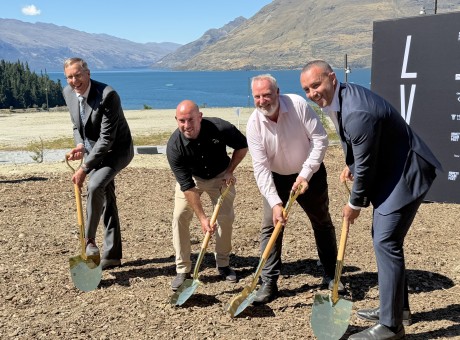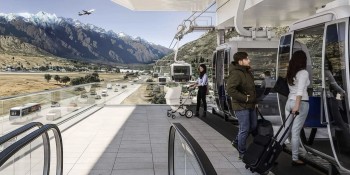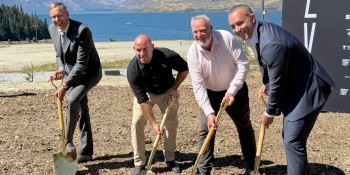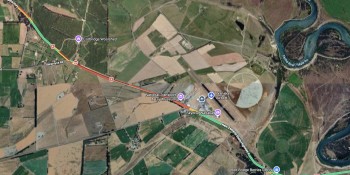Boss as landlord can go 'very wrong, very quickly'
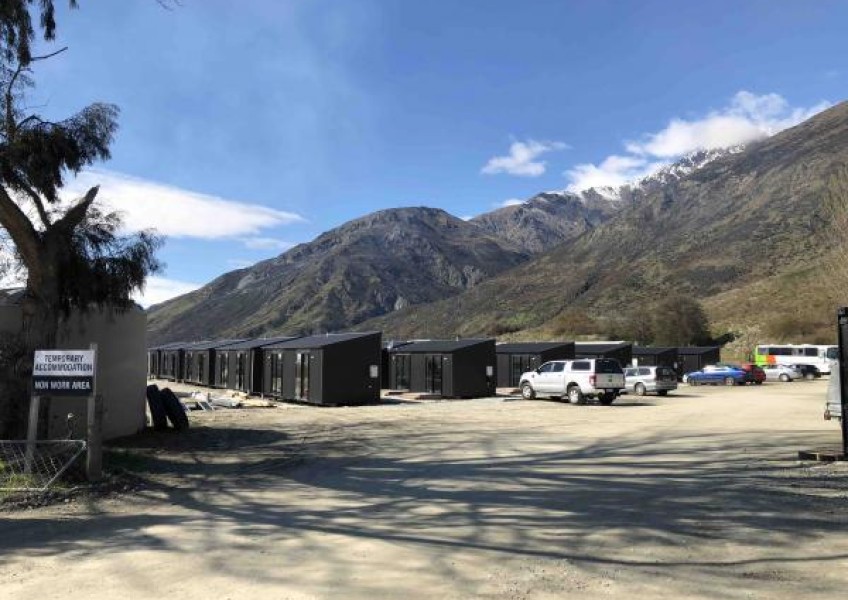
People are increasingly desperate for accommodation in Queenstown and will welcome employers becoming landlords, but a voice for workers says you don’t have to look far to see how such arrangements can go “very wrong, very quickly”.
It comes as the Queenstown Business Chamber prepares to run a three-part information series that aims to provide more detail for business owners on purchasing, leasing, and managing worker accommodation.

Simon Edmunds says when a worker is tied to their employer for a place to call home it makes it very hard to complain about bad work conditions.
Simon Edmunds, of the Queenstown Workers Collective, says “there’s not going to be a worker in town who doesn’t want accommodation off whoever is going to be supplying it at the moment”.
But he wants the community to go into this with eyes wide open to the potential pitfalls of the arrangement.
“One of the main issues we have is you don’t need to look far to see how it can go very wrong, very quickly.”
A recent investigation into accommodation arrangements for RSE workers up north has revealed evidence of exploitation, with business owners squeezing workers into substandard housing, he says.
“While we’re not expecting it in Queenstown to be the same model as the RSE scheme, it is a good warning for us down here that having employers as your landlords isn’t always the best outcome for the workers involved.”
There’s a power imbalance that comes as a direct result of workers “basically being tied to their employers” for a place to sleep, and that will be twice-fold for workers that also rely on their place of work for visa sponsorship, he says.
“In that situation, they’re already feeling very beholden and kind of trapped in their jobs, even if they’re unhappy, because if you complain you could lose your visa.
“And, of course, if that’s compounded with your employer also being the person who's your landlord, I mean, it's basically making it that workers in that situation would feel it very, very, difficult to raise any complaints or problems that they have in the workplace for fear of basically losing their houses.”
Sharon Fifield is the chief executive of the Queenstown Business Chamber – since 1991 it’s been a voice for the local business community.
She says right now staff housing and workforce shortages are two key issues keeping people up at night.
“We know staff housing and workforce shortages are creating huge stress, both for businesses and for renters.”
In his latest labour market report for the district, Arrowtown economist Benje Patterson says rental houses have always been in short supply, but it is particularly bad right now.
Data from Trade Me Property Director Gavin Lloyd, quoted in the report, shows a 49 percent drop in the number of rental listings in the district from December 2021 to 2022.

The chamber's Sharon Fifield: 'We need a multi-faceted approach to resolving the housing shortage because the problem is huge and too big for one person or entity to fix'.
And, since the report was written, the number of rental properties has fallen further, according to the business chamber.
"There were 4,035 long term rentals tenanted in Queenstown-Lakes in December, down 33 properties on the 4,068 active rentals in November. The number of rental properties in the Queenstown Lakes District is now at its lowest levels since June 2020 in the early stages of the Covid-19 pandemic."
Many business owners locally are already investing in staff accommodation to attract and retain staff – Wai Hospitality Group, which operates a handful of local restaurants, purchased a staff house in November, the Novotel signed a long-term lease for a former youth hostel on Shotover Street for its staff around the same time, while, starting last year, staff working at Cardrona and Treble Cone have had the option of supplied digs in Wānaka. And, there’s others like them.
Ms Fifield says the free series it’s hosting is “something proactive we can do as a chamber to provide business leaders with relevant information and tools to empower them (business owners) to make decisions”.
The series kicks off Tuesday week (April 4) with Kelvin Davidson, the chief economist from Core Logic, and Anita Vanstone, the Queenstown Lakes District Council’s strategic growth manager.
“Kelvin will talk about the real estate market, particularly for those looking to invest in worker accommodation, as well as giving a wider New Zealand perspective, current trends, and what’s happening in Queenstown. Anita will provide more detail about the district’s housing strategy and context about how it affects people’s businesses.”
With funding support from Te Hau Toka Southern Lakes Wellbeing Group, the chamber has expanded the information series beyond its usual membership to anyone interested across the Southern Lakes region.
Te Hau Toka Chair Adell Cox says that her group recognises the pressure people are under and wants to do what they can to help support their wellbeing.
“We know that the constant stress and pressure around staff housing and workforce shortages is putting a huge strain on people’s mental health so we’re supporting a range of industry initiatives across the Southern Lakes region to ensure people have equitable access to relevant information.
“Ultimately, if the information helps people to resolve some stressors like attracting and retaining staff or finding a place to live, it will have a knock-on effect to improving overall mental wellbeing - not only for business leaders and their staff, but for the wider community.”
Mr Edmunds says he wants resources readily available to empower workers to be part of the conversation too, although he acknowledges it’s not the job of the Queenstown business group to do so.
"Our experience when interviewing and talking to working holiday visa workers who've recently come to town is they've got no information at all about what their legal rights are - either in regards to accommodation rental situations...or work situations in terms of minimum wage, the hours that they need to work to be given a break et cetera.
"So, really, you'd want any worker that's going into accommodation here that's employer accommodation, there should be some sort of way that they are given support, either by council, or perhaps it could be a central government-organised thing, perhaps it could be a union-driven movement, but they need to get the information so that they're going in with their eyes open.
"At the moment, all the information seems to be pointed towards supporting employers in that situation, rather than actually giving workers a heads-up."
He's also calling for more robust processes to be put in place to help ensure rules that do exist for landlords are being followed.
"I'd be very keen to find out what what are the ways in which these accommodation providers are being visited and checked on?
"In town here, we've found that some groups like WorkSafe, who are supposed to be checking that businesses are meeting their legal requirements in terms of break rooms and access to water and toilets, and stuff like that, they just don't inspect here because we don't meet the threshold of high risk in hospo and retail."
He wants to know if anyone will be responsible for checking workplace-provided accommodation is fit for purpose, meeting the healthy homes standards, and are not overcrowded.
"Is all just going to be treated like a private landlord tenant situation, in which case there's no real oversight and the best you can do is take them to the Tenancy Tribunal, if you know that that's something you're allowed to do, or is there going to be a council position that's dedicated to actually going around and monitoring the conditions in these workplaces?"
Are you a business owner keen to know more about the staff housing information series being put on by the Queenstown Business Chamber? For dates, times and how to register, head to https://events.queenstownchamber.org.nz/staff-housing-information-series-core-logic-qldc/.
Main image: A temporary workers accommodation hub, which popped up during construction of the Queenstown Country Club project in 2018. At the time, the employer told Crux it was a 'common sense' solution to the accommodation shortage.







